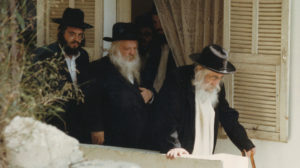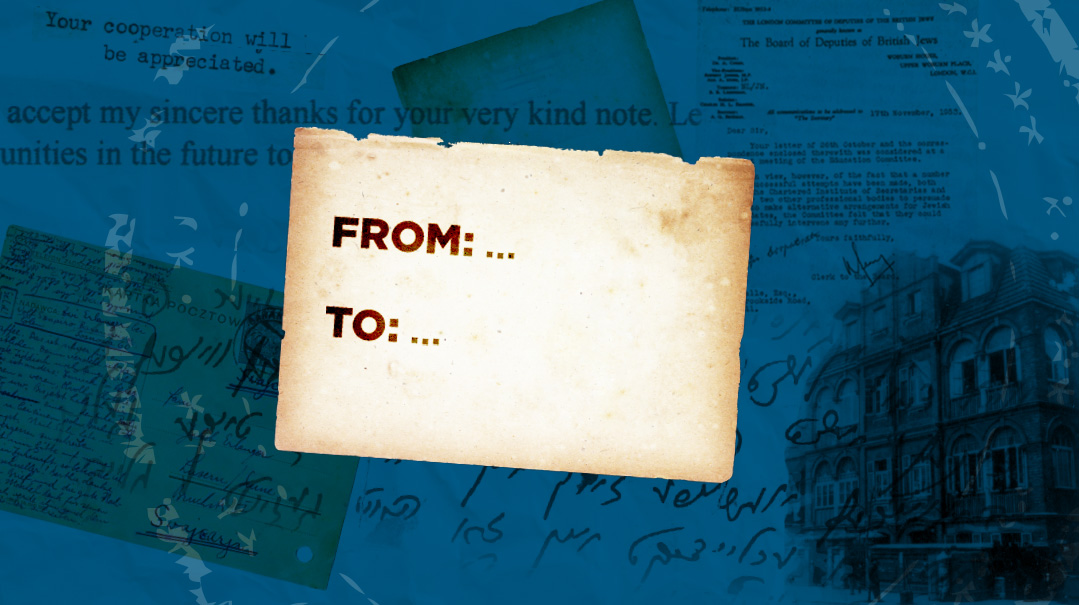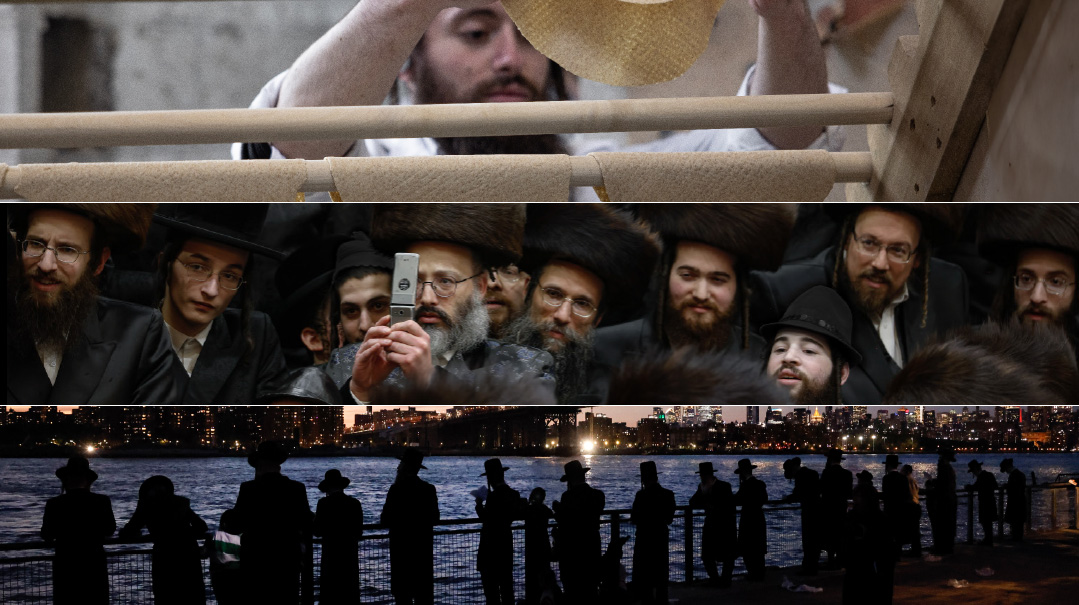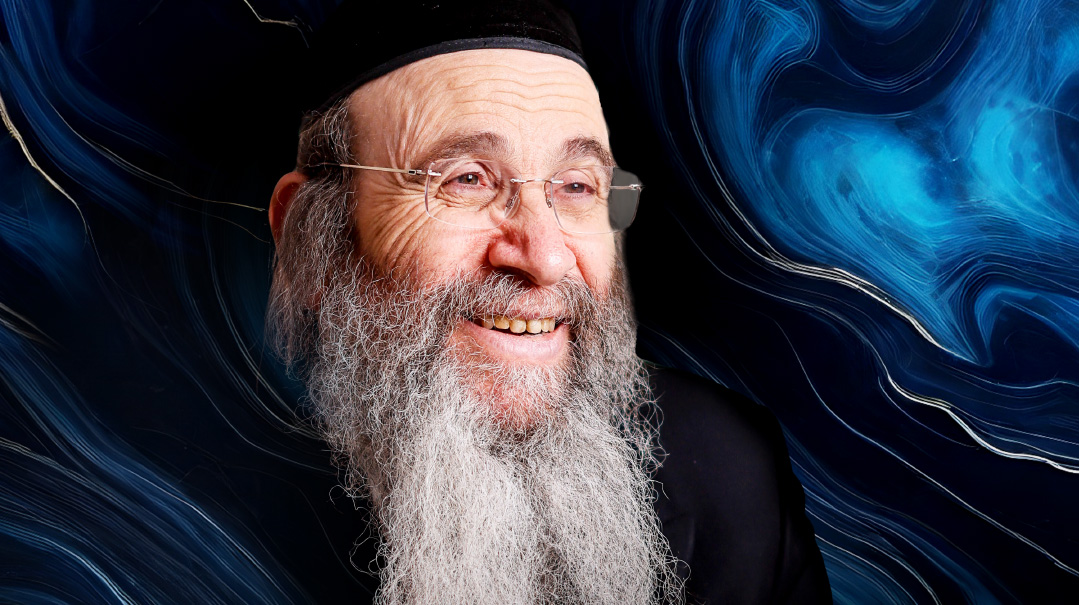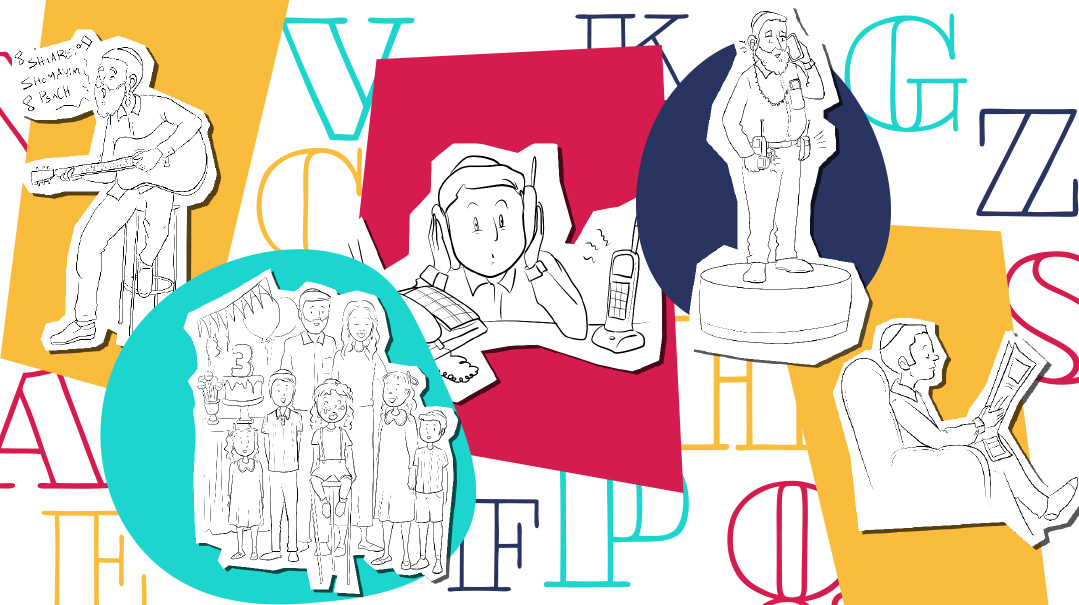Master Class
| September 29, 2020Rabbi Bentzion Kugler is first and foremost a master educator. He shares six lasting lessons from the gedolim that inform his approach to chinuch — and to life
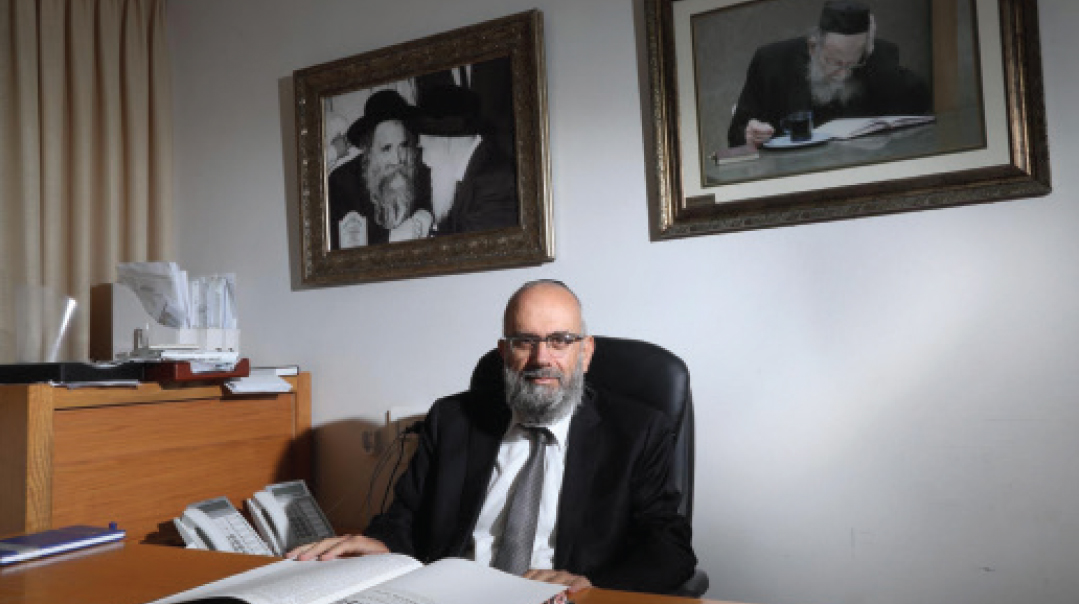
For years, pundits and journalists at the Jerusalem Municipality marked Bentzi Kugler as a future contender for mayor. He was that rare chareidi politician with the energy and warmth to engage every other demographic coming through Jerusalem’s City Hall, an accomplished activist who set goals and met them. So it was a shock when he suddenly called it quits and left politics.
But insiders understood. The ability to intuit others’ unspoken needs that had made him successful as city councillor didn’t come from a background in politics or diplomacy, but from his first love and real calling.
Because Rabbi Bentzion Kugler is first and foremost a master educator. As principal of the Talmud Torah Chavas Daas in Yerushalayim — located at the heart of the capital and with an enrollment of over 1,000 students — he’s one of the most prominent chinuch personalities in the contemporary chareidi world, at the helm of an institution that straddles the line between tradition and innovation.
“You have to understand,” says a cheder alumnus who is now the rosh yeshivah of a prestigious yeshivah and sends his own children to his alma mater, “Rabbi Kugler was a revolutionary. Instead of expecting the children to adapt to the system, he tailored the system to work with each child.”
When Rabbi Kugler first founded Chavas Daas, the chinuch climate differed dramatically. Many chadarim in Yerushalayim maintained the strict, harsh approach of yesteryear — including, unfortunately, corporal punishment and uncompromising standards — and a child who couldn’t make the grade was out.
But Rabbi Kugler’s approach to chinuch was different, because he focused on every student as an individual. By identifying each child’s strengths and weaknesses, Rabbi Kugler was able to give his talmidim the tools to harness their strengths and compensate for any deficits.
Ask Rabbi Kugler, though, and he’ll give you a different reason for his success: he credits his close relationship with gedolei Yisrael past and present. Rabbi Kugler sought advice from Rav Shlomo Wolbe, Rav Elazar Menachem Man Shach, Rav Yosef Shalom Elyashiv, and Rav Aharon Leib Steinman, and today, he discusses concerns with Rav Chaim Kanievsky and Rav Gershon Edelstein. Their keen guidance, he says, has shaped his entire approach to education.
“Everything I know, I learned from the masters,” Rabbi Kugler says emphatically. “There’s a Midrash that one who takes advice from the sages does not falter. This isn’t just a helpful tip; it’s a guarantee.”
Speaking to the Heart
Along with his primary role as menahel of Chavas Daas, Rabbi Kugler wears several other hats. He serves on the board of major organizations in the chareidi world, among them the Kemach Fund that supports fathers of Torah families on the road to acquiring a vocation. For five years, Rabbi Kugler served as a councilmember of the Jerusalem municipality, but then he left the political arena. “I realized I couldn’t devote myself wholeheartedly to my talmidim when I had another official position competing for my attention and loyalties,” he says.
Rabbi Kugler also serves as chairman of the Keren Hashvi’is, an organization that encourages and funds the observance of shemittah among Israel’s farmers. It’s an intensive job that rolls around once every seven years, but he says the effort brings its own reward and recharges his spiritual and emotional batteries for the next seven-year period.
The Keren Hashvi’is is a natural fit for Rabbi Kugler — he was actually born in the Torah-observant agricultural settlement of Komemiyus, which was renowned for its collective observance of shemittah k’hilchasah, and from an early age, he formed a close relationship with its rav, Rav Binyamin Mendelsohn, who traveled the length and breadth of the country to encourage Israeli farmers unaware of, or struggling to observe, the laws of shemittah.
Those experiences helped young Bentzi Kugler gain an understanding of human nature, of the power of persuasion, and of how to speak from the heart.
“When I was a bochur, Rav Mendelsohn and the Slonimer Rebbe visiting Zavdiel, a nearby settlement populated mostly by Yemenite Jews, to promote the mitzvah and observance of shemittah k’hilchasah,” he remembers. “From the Rav, I learned how to speak to people, how to talk to their hearts and persuade Yidden to forfeit their parnassah for a full year. And I learned to appreciate the greatness of the struggle — to recognize how precious our effort can be to Hashem when the going is hard.”
Here, Rabbi Kugler shares six lasting lessons from the gedolim that inform his approach to chinuch — and to life.
Lesson #1: Tradition Above All
I was privileged to cultivate a close relationship with the unforgettable mashgiach Rav Shlomo Wolbe, and his clear instructions and brilliant direction serve as our guideposts at the cheder until this very day. Approximately two decades ago, in the course of one of his shmuessen to our faculty on fundaments of chinuch, he emphasized that the paramount principle and underlying foundation of chinuch is our sacred mesorah.
Rav Wolbe then illustrated his point with the following episode: “In the early days of Chinuch Atzmai in Eretz Yisrael, I was honored to serve as a member of the board along with illustrious sages as Rav Zalman Sorotzkin, Rav Shraga Grossbard, and the Slonimer Rosh Yeshivah. When a question arose regarding which perek in Gemara should be taught first, to young cheder boys beginning their journey into Gemara, we relayed the question to Rav Aharon Kotler.
“Begin with perek ‘Eilu metzios’ in Maseches Bava Metzia, and I’ll give you three reasons why,” the venerable Rosh Yeshivah of Beis Medrash Govoha told them. “But you should know that the third reason is by far the most compelling.
“The first reason,” he explained, “is that this perek teaches man one of the premises of Jewish life, which is: ‘What is mine according to halachah is mine; and what is not, is not mine.’ Even if one finds an item abandoned on the road, it does not automatically belong to him. And this is a crucial point to ingrain in the neshamah of every young child as he commences learning the Gemara.
“The second reason is that there are many masechtos that teach clear-cut halachah regarding what is permitted and forbidden. In contrast, perek Eilu metzios abounds with svaros, such as when a person despairs of his loss and when he doesn’t, what constitutes a siman, etc. All these teach a child critical thinking and the importance of delving into the Gemara fully to arrive at the truth, and this is an invaluable skill that remains with him throughout his life.
“But the third — and most important — reason why we begin learning Gemara with Eilu metzios is because this is what our fathers learned, and what their fathers learned before them!”
Many years later, I heard the same message echo in a different voice. At a recent chinuch assembly, someone asked Rav Chaim Kanievsky whether a yeshivah bochur should learn additional masechtos beyond the yeshivah curriculum. He then proceeded to ask Rav Chaim what he’d personally learned as a bochur in yeshivah, and which masechtos he’d chosen to learn independently.
Rav Chaim’s answer surprised us all: “I learned exactly what the Tatte told me to learn.”
Hearing his reply, I was immediately reminded of Rav Aharon Kotler’s message to my rebbi Rav Shlomo Wolbe years earlier. “We learn Eilu metzios because this is what our fathers learned!”
Lesson #2: Never by Force
We think of chinuch as some sort of training or conditioning process — acculturating our children to certain practices or behaviors until they become second nature. But the root of behavior is internal values, and our goal is not to condition or regulate our talmidim to follow commands, to abide by a fixed set of rules, or adopt specific habits or behaviors. Instead our goal is to ingrain values and help them assimilate knowledge, understanding, and appreciation of Torah-based insights that will remain in the long-term.
When Rav Gershon Edelstein was asked whether parents should force a child to perform certain behaviors, his answer was forceful and memorable.
“Parents and mechanchim should never even nudge a child!” he said. “We are responsible to treat children with respect and interact with them in a pleasant way. In our generation, we’ve seen time and again that children who were forced to act in a certain way and were punished or castigated for failing to do so ultimately faltered and, in many heartbreaking cases, left the path.”
The second foundation that I learned from Rav Gershon is the importance of positivity. Rav Edelstein told us that while a child should know that he is being watched and supervised, he should never feel unloved, disparaged, or scorned. “Even when parents try to conceal their criticism,” Rav Gershon said, “children inevitably sense it, and this, tragically, is one of the primary motives of children who leave the fold of Yiddishkeit. It is permissible — and also vital — to comment and even remonstrate when necessary, yet rebuke must come from a place of warmth, love, and concern. Constant criticism and condemnation are catastrophic!”
Lesson #3: Do as I Do
In my years of experience in education, I’ve met all too many parents seeking out a cheder that will transmit values they respect — but don’t really live up to. These parents don’t realize that the vast majority of learning takes place at home, and that every child is naturally inclined to emulate his parents and follow the patterns that he saw at home. A parent can lecture his child about davening — but if he instead arrives early at shul, is careful not to talk, and invest in his tefillah, that will be a much more enduring lesson.
I’ve learned from Rav Aharon Leib Steinman ztz”l that the same principle holds true for mechanchim. Rav Steinman often cautioned us that a menahel must be extremely selective when hiring a rebbi. He often repeated that the mechanech’s character creates a far deeper impact on the child’s soul than the lessons he teaches. While the material taught may fade with time, the memory of his rebbi’s character remains with a child for a lifetime.
Moreover, he emphasized, a mechanech should never demand that a child strive for levels that he himself has not achieved. There is a famous story of a rosh yeshivah who once approached Rav Steinman and asked how he could ingrain within his bochurim “a taam in tefillah!”
In all seriousness, Rav Steinman replied, “Are you sure that you possess that feeling for tefillah? First work on developing this in your own heart, and only then ask your bochurim to strive for the same.”
He further stressed that a mechanech who makes spiritual demands of his talmidim that he has not yet attained is not only failing to guide them along the true path, but actually leading them to potential downfall by teaching that one need not practice in order to preach.
Lesson #4: Bring it to Life
One of the most effective educational methods is bringing the learning outside of the books and into the realm of real-life relationships. In my capacity as chairman of Keren Hashvi’is, I once received a phone call from a patron in Monsey who shared an unusual story and an even more unusual request.
“There’s a Jewish family that lives in a small town about an hour from Monsey that has few Jewish resources,” he told me. “Their eldest son is approaching bar mitzvah, and they sent him here for bar mitzvah lessons. One of the subjects that arose in the course of his lessons was shemittah, which is soon approaching, and its significance to Jewish residents of Eretz Yisrael. The boy was so touched by the mitzvah and its demands on the simple Jewish farmers that he told his parents that he wants to forgo the extravagant affair that they’ve been planning for his bar mitzvah, suffice with a modest party and celebration, and donate all the extra money that they’d planned on spending on the affair to a shemittah-observant farmer in Eretz Yisrael.
“The parents were stunned,” the patron told me, “but their son was so determined that they realized they had no choice. Somehow they tracked me down, and that’s why I’m calling you — can you arrange to transfer this boy’s bar mitzvah money to an Israeli, shemittah-observant farmer?”
I realized this not just a mitzvah opportunity, but also a rare chinuch opportunity for the kind of lesson that’s cemented by personal connection. Instead of just transferring the money to a random farmer, I decided to play matchmaker and seek out a farmer who would keep in touch with this special young man. I was quite sure that this great mitzvah and the bar mitzvah boy’s profound emotional connection to shomrei shvi’is farmers and mitzvos hateluyos ba’Aretz was not a fleeting, one-time whim, and I felt that it was important to cultivate this relationship and preserve it, so it wouldn’t fade away.
I connected this bar mitzvah boy with two farmers who fit this description perfectly, and they began corresponding regularly. Later that year, in the course of shemittah, the family visited Eretz Yisrael, and we arranged a special meeting between the family and the two farmers who had benefited from his outstanding act of tzedakah and chesed.
It’s seven years later, and this boy has grown beyond anyone’s expectations — from the combined force of his own tzedakah, and the power of a personal relationship with other striving Jews.
Lesson #5: Who is Truly Elite?
We live in a world that seeks out the biggest, the best, the shiniest, and most exciting; in the chinuch field that often translates into “baalei kishron” — talented, gifted children. During my years as principal, I’ve dealt with children of all stripes — some brilliant, some academically delayed, and many, many average students. What I’ve noticed is that it is not the geniuses or masterminds but rather the average and sometimes even the ones labeled “below average” who tend to work hard, hone their minds and skills, and mature into our nation’s eminent rabbanim, poskim, and marbitzei Torah.
Hardly a day goes by when I don’t reflect upon the beautiful lesson taught by Rav Aharon Leib Steinman when he was asked what motivated him to invest his efforts into average or below-average talmidim.
I often contemplate the Gemara that teaches that Hillel Hazakein had 80 talmidim, 30 of whom were worthy that the Shechinah should rest upon them, and the simplest of all was Rabban Yochanan ben Zakkai. “Consider,” Rav Steinman said, “that the entire Torah that we have today comes from Rabban Yochanan ben Zakkai, who was ‘the simplest of all!’ Yet he was the one who transmitted Torah to the next generation!”
As mechanchim, it is incumbent upon us all to regard even the simplest of our talmidim as the future Rabbi Yochanan ben Zakkai. Because you really never know.
Lesson #6: Everyone’s Children
Many years ago, a couple entered my office seeking to register their son in our cheder. “Our son has a mild disability,” confessed the mother, “but he’s still mentally and academically on par with his peers.” That was a red flag, so I delicately probed about this “mild disability” until I gleaned that it was liable to disrupt the entire classroom dynamic. It was clear to me that, despite his parents’ reservations, the child would require intensive remedial support and I was quite sure that even the most talented rebbi would not be capable of teaching a classroom of students with this boy sitting in his class.
Reluctant to break the parents’ hearts, I told them that although I very much wished to help them, I was still responsible for all the other children in the class.
“Why don’t we ask Rav Elyashiv?” suggested the father, much to my relief and delight.
We approached the gadol hador who listened patiently while the father described his son’s disability and I presented my concerns regarding the cheder.
After a moment’s thought, Rav Elyashiv replied: “A regular child is his parents’ responsibility, and it’s up to them — and only them — to facilitate his growth and assist him with his needs. A special child, on the other hand, is the responsibility of both the parents and general community. HaKadosh Baruch Hu did not send this child exclusively to his parents; He sent him to Klal Yisrael, and Klal Yisrael is collectively responsible for him. Given that the cheder is a communal institution, it is the obligation of the administration, along with the parent body and all the talmidim in the cheder, to support him. Therefore, it is incumbent upon you to do everything possible to mainstream this child into a regular classroom.” Rav Elyashiv added a heartfelt brachah that the class would not suffer any setback or lose out due to the presence of the new boy.
Ultimately, this child spent eight years in our cheder, graduated along with his peers, and continued into excellent yeshivos. Looking back upon decades of talmidim, I can say now with certainty that this class of boys stands out in my mind for their exceptional middos and refined character. What I originally viewed as a disability proved a formula for understanding, acceptance, and growth.
Field Lessons
While Rabbi Kugler is a regular visitor to the homes of gedolim in the context of his educational work, his shemittah advocacy provides him with a rare opportunity to watch gedolim interact with unlearned farmers and talk to them about the paramount importance of this mitzvah and its significance to our nation as a whole.
One episode that stands out in his mind occurred this past shemittah, when Slabodka Rosh Yeshivah Rav Dov Landau joined the nasi of the Keren, Rav Yisrael Yitzchak Mendelssohn, for a tour of the fallow orchards sprinkling the Sharon coastal plains.
In the course of the tour, the delegation met with a large number of farmers who had abandoned their fields and orchards throughout the year of shemittah, trusting implicitly in Hashem’s promise of an extra dose of blessing. Suddenly they we were approached by a farmer who, while mildly traditional, was not stringent in his observance of shemittah. He presented his grievances and began arguing about various aspects of hilchos shemittah until he finally drew what he was certain was his winning card.
“In this day and age, shemittah is anyway d’Rabbanan,” he argued.
Rav Mendelssohn automatically reacted that one is obliged to fulfill all halachos in the Torah, both d’Oraisa and d’Rabbanan. Then Rav Dov Landau murmured to Rav Mendelssohn, “Leave it to me.”
Turning to the aggravated farmer, he said, “Do me a favor. Tonight, when you go home, ask your wife to put a pot of milk to boil on the stove. When it’s good and hot, put a piece of chicken inside and eat it for supper.”
The farmer’s face turned purple, and his voice quivered in outrage. “Do you really think that I’d dare to mix meat and milk in my house?” he demanded, deeply insulted.
With a gentle smile, Rav Landau replied, “But it’s only chicken, not meat, and mixing chicken and milk is merely an issur d’Rabbanan. So what’s the difference between this and that, my friend? Only that you were educated from an early age that mixing dairy and meat is prohibited, whereas you never learned that shemittah is similarly forbidden. What you were taught by your parents is sacred to you, and you will not transgress it even it is ‘only’ d’Rabbanan. I want you to know that shemittah is no less sacred than basar v’chalav, and if you internalize this message then you will never dream of diverging from even one halachah of shemittah!”
The Roommate
Rabbi Kugler still remembers the time 30 years ago when Rav Chaim Kanievsky visited the cheder and tested the children. At the close of the visit, he escorted his distinguished guest to the car, and Rav Chaim asked several questions about the cheder; specifically, to whom we relayed our spiritual questions and dilemmas.
Without a moment’s pause, Rabbi Kugler replied that the cheder was under the auspices of Rav Wolbe, and that the mashgiach served as their spiritual guide along every step of the way.
“Rav Shlomo Wolbe? Send him my regards,” said Rav Chaim. “We were roommates back in the Lomza yeshivah.”
Rabbi Kugler paid a special visit to the Rav Wolbe to relay the regards that he’d received from his childhood friend. In response, the mashgiach marveled aloud at Rav Chaim’s phenomenal memory.
“Maybe I don’t understand,” Rabbi Kugler said, “but why is Rav Wolbe so impressed? Surely recalling a childhood friend — especially an old roommate! — even during one’s elderly years doesn’t indicate an extraordinary mind or memory.”
“Let me explain,” Rav Wolbe answered. “It’s true we were officially roommates, but we never actually met in our room. You see, Rav Chaim rarely left the beis medrash, so I don’t think we were ever in the room at the same time. I suppose that Rav Chaim must have recalled the notice posted on the yeshivah bulletin board listing the roommates, and this is why he told you to send me regards. And that,” emphasized Rav Wolbe, “is the sign of a phenomenal memory.”
I Cannot Tell a Lie
Here’s a story about Rav Wolbe that Rabbi Kugler often shares with his talmidim to highlight the meaning of absolute integrity and emes:
Over the years, I often had the privilege of driving the masghiach in my car. In his later years, it became difficult for him to fasten his seatbelt on his own, so someone would usually assist him. Once we were in a particular hurry, and there wasn’t time to help him with his seatbelt before we rushed off toward our destination. Anxious that I’d be ticketed, I politely asked the mashgaich to hold the belt in his hand until I could pull over and fasten it properly; yet to my chagrin, not only did the mashgiach ignore my request but he deliberately unraveled it and allowed it to slide back into his holder.
When I was finally able to pull over to the side of the road and assist him with the buckle, I asked the mashgiach why he’d released the seatbelt.
His answer astounded me, once again demonstrating the absolute truth by which our gedolim live their lives: “If I’m holding the seatbelt without fastening it properly, I’m projecting falsehood, and I can’t live with sheker!”
(Originally featured in Mishpacha, Issue 830)
Oops! We could not locate your form.





